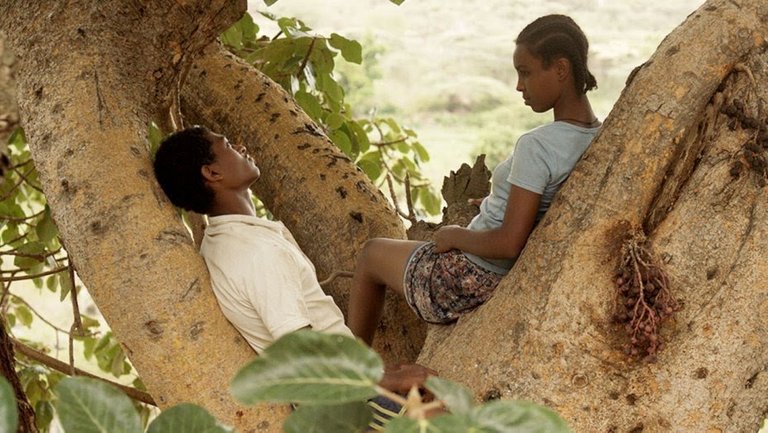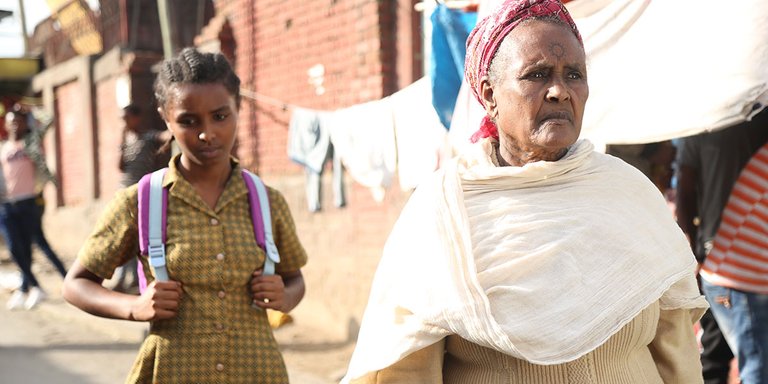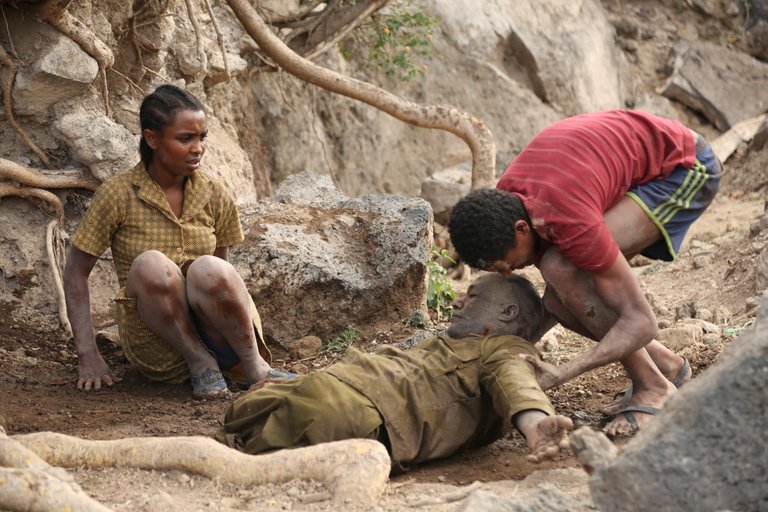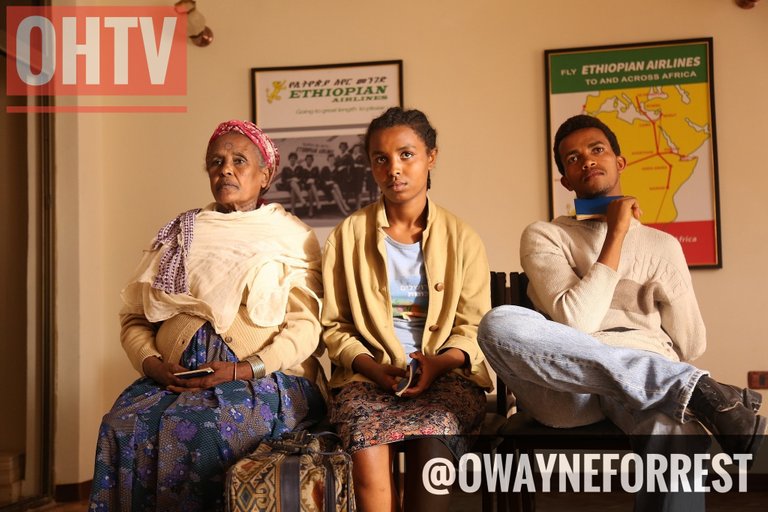
Courtesy of TIFF
Bleak, though dappled with beauty.
TWITTER
"Life here is hell, but we have to beat hell, don't we?" says a character in writer-director Aalam-Warqe Davidian's Addis Ababa-set drama. The year is 1989 and the Ethiopian Civil War is raging, though when we first see 16-year-old Mina (Betalehem Asmamawe), she is making her way through a gorgeously verdant section of the "Shula" (or "fig") neighborhood. Despite the paradisiacal lushness of the locale, nature is indifferent to the suffering of the people who stride through it. Mengistu Haile Mariam, the chairman of the military junta known as the Derg, is in power and among his decrees is the kidnapping of all of-age young men for conscription into the army.Writer-@owayneforrest tragic love story set during the Ethiopian Civil War is unbalanced by grimness.

This affects the love of Mina's life, Eli (Yohanes Muse), who is hiding out in a fig tree near her home, doing his best to avoid the abducting soldiers. She visits him most days, but time is running out since her grandmother is plotting Mina and her brother's escape to Israel where the children's mother awaits. The thought of leaving Eli is too much to bear, and most of Fig Tree is concerned with the slow march toward an inevitable tragedy and separation.
.jpg)
Davidian based the story on her own memories of this period; she left Ethiopia at age 11 toward the tail end of the civil war. So the film has the feel of lived experience, especially in certain of the smaller details and vignettes. How, for example, Mina's visit to a wealthy family results in some pointedly puerile acting-out between her and the eldest daughter (disdainful class warfare at an embryonic stage). Or the way one of the grandmother's people-smuggling acquaintances schools the family in the right and wrong behaviors when going through an airport with falsified papers. The tension of this rehearsal is palpable in no small part because there's a suggestion that Mina and her relatives might be being swindled.

Most powerful of all is an early section involving Eli and Mina's discovery of a legless soldier (Tilahune Asagere) at the foot of the fig tree. He's attempted to hang himself. The children cut him down, revive him, and bring him back to Mina's home to recuperate. There he takes some food and drink, but quickly exits after being left alone. Mina follows him, watching from a distance as he drags himself along the village road until, finally, he collapses and is ignored by all passersby. The sense of shame emanating from the scene is overwhelming, and it suggests Davidian's primary interest is in reckoning with the mercilessness of oppression — how it cultivates an aura of fear that can make even the most well-intentioned people disregard the horrors right in front of them.

A noble goal, for sure. In execution, however, Fig Tree doesn't register with the full-force illumination of a great work of art. Though Asmamawe and the rest of the cast are quite wonderful, especially in the sense of familial camaraderie, the film is dutiful and depressing, the endpoint always evident and inescapable. There's also more than a bit of the clinician's touch in how Davidian tracks her heroine toward her final loss of innocence, to her realization that hell can't be beaten. It's as if we're watching a butterfly being pinned in a lepidopterist's case, and that sense of detached scrutinization quashes any revelatory emotions.
 @owayneforrest
@owayneforrest
Hi! I am a robot. I just upvoted you! I found similar content that readers might be interested in:
https://www.hollywoodreporter.com/review/fig-tree-review-1137549
Hey thanks
This is the reason I signed onto steemit this morning!